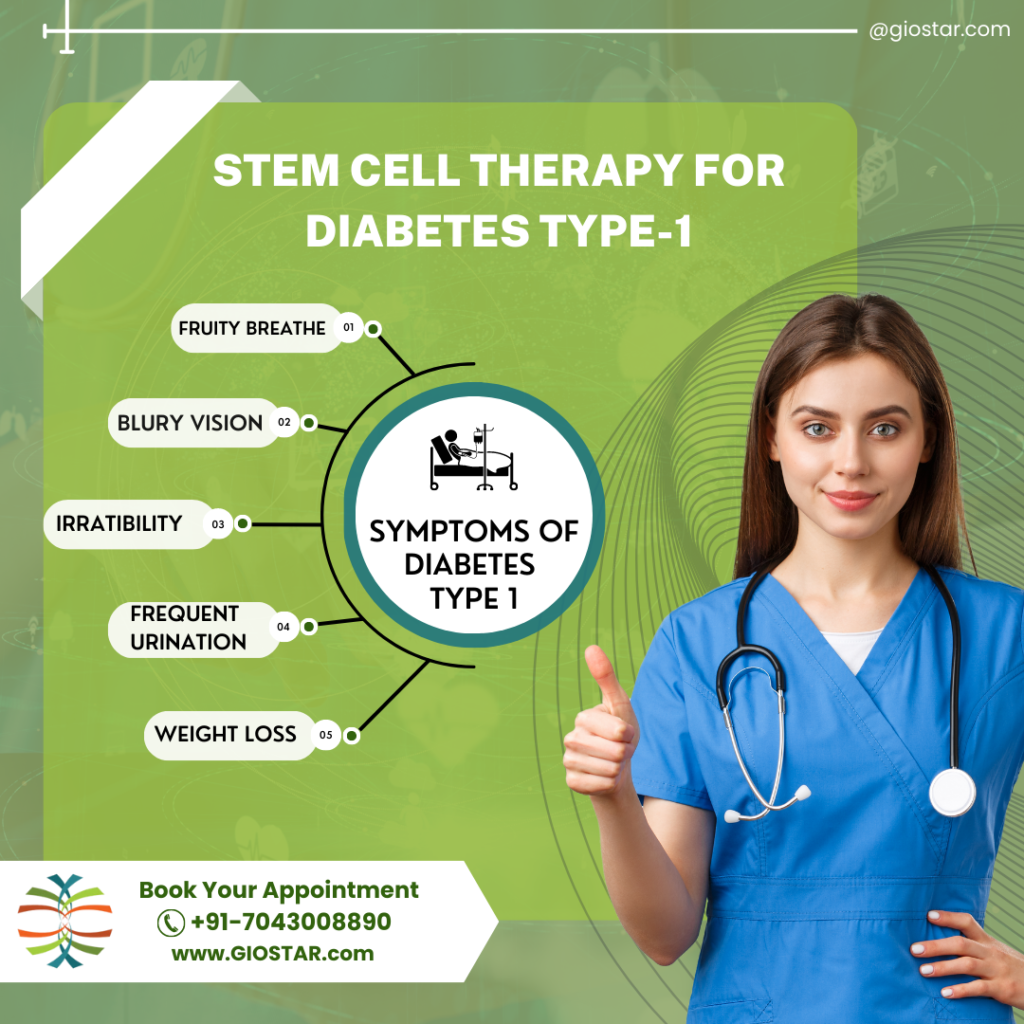What is Diabetes Type 1 ?
Diabetes is the disease affecting the metabolism of glucose to a great extent. The glucose is required by the cells for energy production and normal functioning. This glucose comes in the blood from the food we eat and carried to the cellular level by an important hormone known as the insulin. Once the meal is consumed by the body, it breaks down into the glucose and other nutrients which are then absorbed in the bloodstream from the gastrointestinal tract. This glucose is then transferred from the blood stream to the cells. The diabetes develops when the body either can’t prepare insulin or can’t respond to the insulin. Diabetes can be mainly differentiated into two broad categories such as Diabetes Type 1 & Diabetes Type 2.
Type 1 diabetes also known as insulin dependent diabetes or juvenile diabetes, when the pancreatic ability to produce insulin is reduced.
How prevalent is Diabetes Type 1?
By the end of 2013, almost 9.3% of the kids are known to be suffering from Juvenile diabetes. In general, diabetes remains the seventh leading cause of death globally. The rates of diagnosed diabetes on the basis of race and ethnic background are
- 5% Non Hispanic or white adults
- 0% of Asian Adults
- 8% of Hispanics
- 2% of Non Hispanic blacks
- 9% of American Indians/Alaskan Natives

Factors responsible for Juvenile Diabetes
Various risk factors for the development of juvenile diabetes such as age, race, sex, geographical location and seasonality have been reviewed and confirmed.
- Age: – Age is the major risk factor accounting for more than or equal to 85% of all the diabetes cases less than 20 years of age. In general the incidence rate is progressively observed by birth and increase with increasing age. However the increasing incidence of the disease has been detected between the age group of 10-14 years.
- Gender: – It has been evidently observed that girls are less susceptible to autoimmune diseases than boys. However, the cases of juvenile diabetes are found to be equally affecting irrespective of gender discrimination.
- Genetic : – The expressions of some of the genes are known to be responsible for the susceptibility to diabetes type 1. Of the multiple genes implicated, the HLA class II complex on chromosome 6 are considered to be the prime cause.
- Geography: – The incidence tend to increase for people who are living away from the equator for an instance those who are living in Finland and Sardinia are known to be having higher rates as compared to those US people living in Venezuela.
Apart from these stated above many other factors are known to be responsible for the higher incidence of Juvenile Diabetes such as
- Exposure to certain viruses such as EB virus, Mumps and Cytomegalovirus
- Early exposure to cow’s milk.
- Low vitamin D level
- Drinking water containing many pesticides such as nitrates.
- Early or late introduction of cereals or gluten in the baby’s diet.
- The preeclampsia of the mother.
- Being born with jaundice.
Symptoms Associated with Type 1 Diabetes
The signs and symptoms of Type 1 Diabetes can come on quickly and may include
- Increased thirst
- Frequent urination
- Bedwetting
- Extreme hunger
- Unintended weight loss
- Irritability and mood swings
- Fatigue and weakness
- Blurred vision
- Vaginal yeast infection in females
Prognosis associated with Type 1 Diabetes
Diabetes can be diagnosed generally with the blood tests for examining blood sugar level at fasting and after meal. Apart from that many other examinations can help diagnose the problem at the early stage such as
- Skin and bones of the feet and legs are brittle or get numb.
- Illness such as pneumonia
- Nausea or vomiting
- Fruity mouth odour
What goes wrong in Type 1 Diabetes?
Type 1 diabetes is the complication occurring at any stage but more prevalent in young children. The Human body needs glucose for the generation of energy which is obtained from the food we eat. The foot is broken down into the glucose and other essential molecules immediately after its consumption. In order to move glucose from the blood stream to cells, where it gets metabolize for the energy generation; Insulin is required. Insulin is produced by the beta cells of the pancreas.
In type 1 diabetes, due to autoimmune reaction, body’s own defense system can damage insulin producing beta cells; due to which insulin production is stopped. Without enough insulin glucose gets accumulated in the blood stream itself. This build up of glucose may lead to hyperglycemia.
How Stem Cell Treatment for Diabetes may help!
Stem cells are the mother cells that are responsible for developing an entire human body from a tiny two celled embryo; due to their unlimited divisions and strong power to differentiate into all the cells of different lineage. This power of stem cells has been harnessed by the technology to isolate them outside the human body, concentrate in the clean environment and implant back.
Thus, Stem Cells Treatment for Diabetes involves administration of concentrated cells in the targeted area, wherein they can colonize in the damaged area, adapt the properties of resident stem cells and initiate some of the lost functions that have been compromised by the disease or injury.
Various data is available suggesting in vitro differentiation of stem cells into insulin producing beta cells. These cells can as well help in creating a microenvironment due to initiate secretion of different immune cells to counteract autoimmunity of the individual.
Treatment of Type 1 Diabetes at GIOSTAR
We have mastered the technology for isolating maximum number of viable stem cells from either the autologous sources of your own body or allogeneically with the matched donor to treat various patients. We are the licensed, private organization with the excellent, well equipped state of the art facility to isolate process and enrich the viable number of stem cells, which can be re infused back into the patient’s body. Generally, these cells are administered through any one of the below mentioned methods depending upon our expert’s advice:
- Local Administration:-Through this mode, cell are infused directly at the targeted site of injury.
- Intravenous Administration:- Through this mode, cells are infused through the veins to expand blood volumes in the central nervous system, to ensure that the maximum number of cells are reaching to the targeted area.
Once infused back in the body, these cells can be repopulated at the damaged parts of the pancreas, through their strong paracrine effects and differentiate into lost or damaged beta cells, initiate vasculogenesis and can as well initiate secretion of new immune cells.
What Sets Us Apart
- Headquartered in USA.
- The founder is leading stem cell scientist credited with helping in setting up the stem cell research labs at top research institutions in the US including Salk Research Institute, Sanford-Burnham Institute, UCI, UCSD.
- Scientific And Medical Advisers/Consultants are comprising of luminaries who have worked at University of California, San Diego (UCSD), University of California Irvine (UCI).
- State of the art and the first private hospital in the India inaugurated by (then Chief Minister of State of Gujarat) and present Prime Minister of India.
- One of the world’s largest Stem Cell Hospital funded by the government of Gujarat, India.
Disclaimer : Results may vary for each patient. GIOSTAR practice the application of stem cell therapy within the legal regulations of each country.



